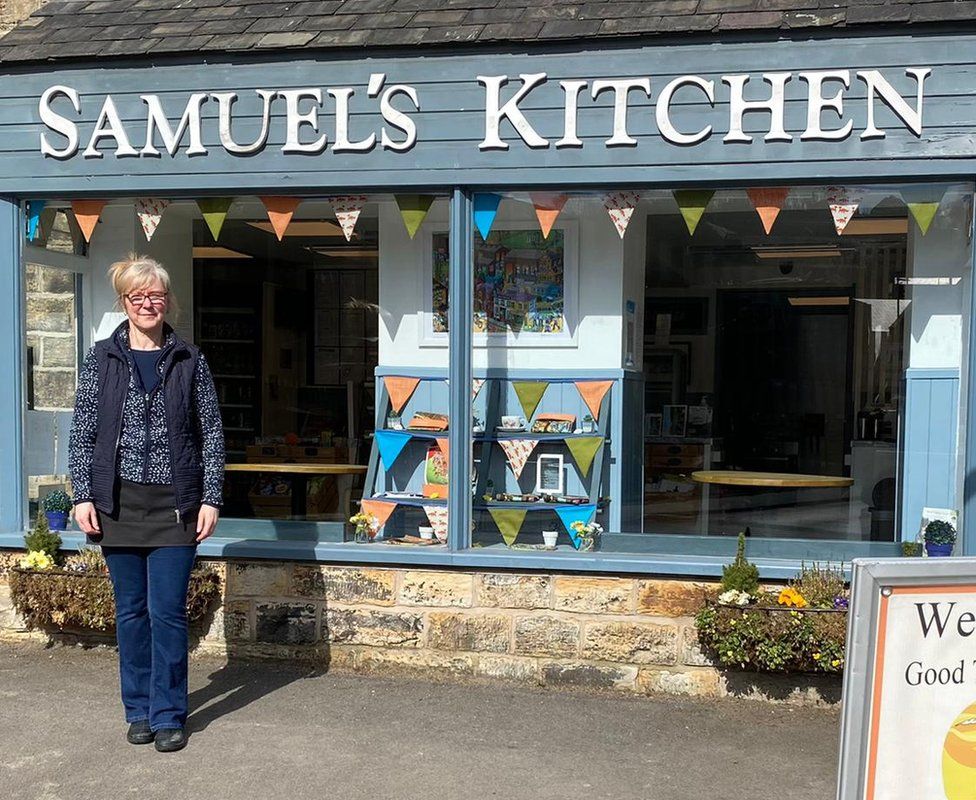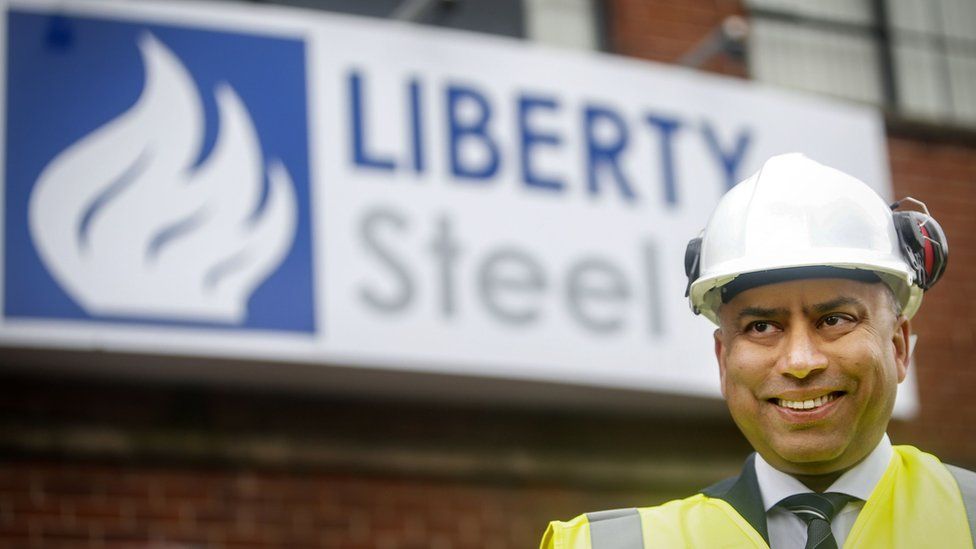
"It's frightening. I don't like to think about it."
Chris Williamson, a Rotherham steel worker, is contemplating the potential closure of the plant where he's worked for 26 years, and the impact it would have on the community.
His dad worked there for four decades, and his brother works in the steel supply chain. Steel is very much a family business.
"Rotherham is a steel town, its recognised as a steel town. It's fundamental to Rotherham's image. It's vital. For every one of our jobs, there's another two or three in the supply chain," says Chris, who's also a local rep for the steel union, Community.
"If we go by the wayside, who's going to pay our wages here? We get a decent wage but we're in a dangerous industry. Where else are we going to get a job like that? It would just be a domino effect of people suffering. In the end, you'll end up with a town full of shopkeepers and no one to buy anything, because they haven't got the income."
Over the decades steel workers like Chris have seen a fair amount of upheaval at the Rotherham plant, and a number of different owners too. First Corus, then Tata, and now Sanjeev Gupta's Liberty Steel, which is battling to secure finance for Rotherham and 11 other sites across the UK, employing 5,000 people.
Tonight, it's emerged that Mr Gupta has written to the government, requesting a £170m bailout for his steel businesses.
The government won't comment on the request, but says it's monitoring the situation closely. The Business Secretary Kwasi Kwarteng told MPs on Thursday that the government is looking at all options to make sure Liberty Steel does not collapse.
Much of the work at Rotherham has ground to a halt, with Chris and many of his colleagues placed on furlough. He's due back at work on 14 April, but it's all very uncertain.
'Nervousness and frustration'
"There's nervousness, but also a bit of frustration," he says. "We were aspiring to be a super plant, making a million tons of steel a year. We've got a full order book, and yet here we are, furloughed."
Despite his current financial woes, Sanjeev Gupta still has a lot of support from steelworkers across the country, including Chris.
"Everybody's a bit bemused by his business models. But when Sanjeev first arrived he was very well received because Tata declared they didn't want us, so we were basically on the scrap heap. Without Sanjeev, we wouldn't be here, so we've got to be thankful for that."
He adds: "Just because he's hitting a bit of trouble, we can't just bin him. We've got to take him at his word at the moment, and hopefully we can ride this out."
Chris isn't the only one scratching his head about Liberty's financial situation. It's a complicated picture.
Finance company Greensill Capital was the main lender to Mr Gupta's sprawling steel empire. It helped speed up cash flow for businesses by paying their invoices immediately, and recovering the money from customers later, for a fee. But it went bust at the beginning of the month, leaving Liberty starved of cash.

'The beating heart of the community'
You can't miss the steel plant in Stocksbridge, Rotherham's sister site 12 miles down the road, just outside Sheffield. The building, which has been home to a steelworks since the mid 19th Century, sits at the bottom of the valley, and its dominance goes way beyond its physical presence at the centre of the town.
"It's the beating heart of the community," says Tracey Martin, who's owned Samuel's Cafe across the road from the site for the past 20 years.
Stocksbridge makes specialist steel products for the aviation industry, which has itself been laid low by the pandemic. Like the Rotherham site, many staff are currently furloughed and it's already affecting local businesses such as Tracey's. At least 50% of her customers are steel workers.
"We've seen a big difference to our business already with the workers on furlough," says Tracey.
"If the steelworks were to go, it would affect every single business in the town, but it goes far beyond the valley with the supply chain that people don't realise exists. It affects a lot of livelihoods."
She's hopeful that the site will be rescued. "Ever since I've owned my cafe, there have been issues with the steel works but luckily, there has always been a little bit of light at the end of the tunnel which keeps them going. We're just hoping that the government or someone can step in temporarily until a new buyer can be found."
Tracey says a lot of businesses were already struggling because of Covid, and the "news about the works has topped it off".

At its peak in the 1970s, the UK steel industry employed hundreds of thousands of people, a significant number of them in South Yorkshire. One of Tracey's regulars, John, used to work at the plant. He says the steel industry in the area is a shadow of its former self.
"When I was an apprentice, there were 9,500 people working in steel around this area. Now it's only around 650.
"The products they make here are so highly specialised, for the oil industry and aviation. If it was to go, it would be a huge loss to the country, not just this area," says John.
UK steel needs help to compete
Many steel analysts would agree. Chris McDonald is a former executive at Tata Steel, and now runs the Materials Processing Institute on Teesside. He says that despite the recent downturn in demand for steel due to the pandemic, the market is now growing again, particularly for the type of specialist steel made at sites such as Rotherham and Stocksbridge.
"The fundamentals of the business are still right, so Liberty might just need some support to be able to ride out this dip in the market," says Chris.
"Then as that market comes back up we can expect their business to come back up as well."
But he says the UK steel industry is falling behind global rivals, particularly in Europe, and that it needs to be put on a sustainable footing with ongoing support.
"The government could buy more UK produced steel for infrastructure projects, the way the French government do. Or they could support more equal energy prices, the way the German government do. Either or both of these things could help the UK industry to compete on level terms."
Back in Rotherham, despite the current owner's problems, Chris Williamson is also optimistic that the town can continue to make steel for many years to come.
"We can spend the next 30 years at least making steel here. We just need a bit of faith. The last 12 years have been like a rollercoaster. But I do think we have got a future."
He adds: "Whether it's with Sanjeev, I don't know."
https://news.google.com/__i/rss/rd/articles/CBMiLGh0dHBzOi8vd3d3LmJiYy5jby51ay9uZXdzL2J1c2luZXNzLTU2NTI2OTAw0gEwaHR0cHM6Ly93d3cuYmJjLmNvLnVrL25ld3MvYW1wL2J1c2luZXNzLTU2NTI2OTAw?oc=5
2021-03-26 18:04:30Z
52781460875892
Tidak ada komentar:
Posting Komentar